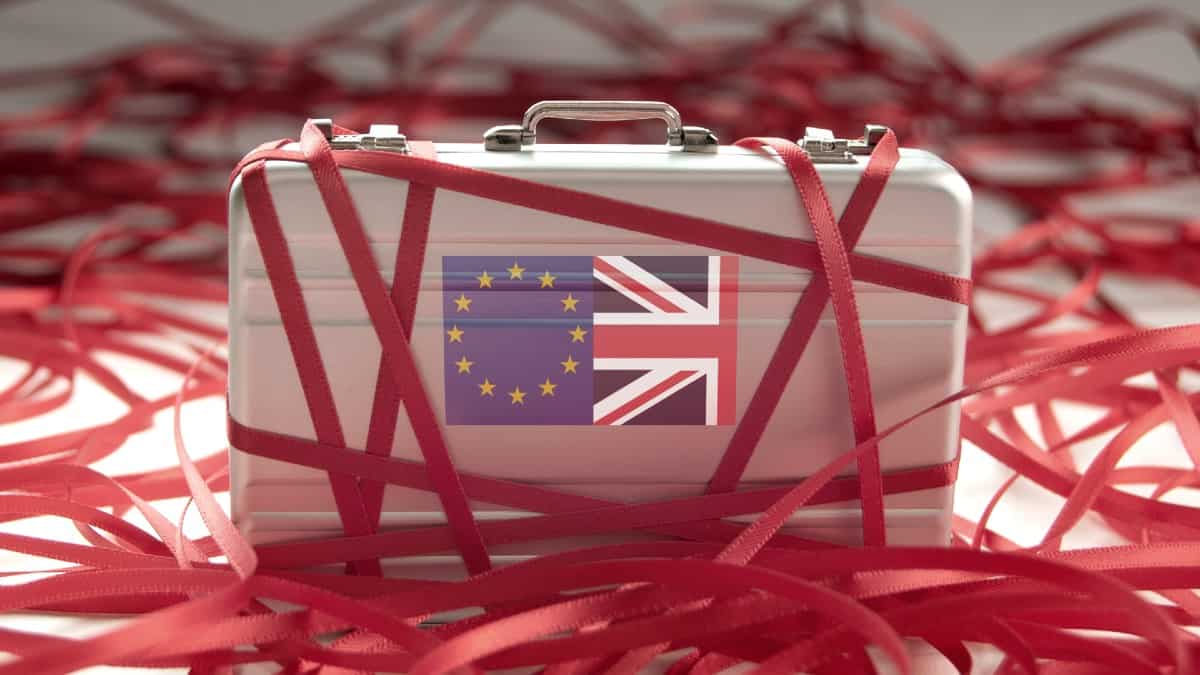Be prepared for new postage charges if you’re buying goods from the EU after Brexit. Here’s the lowdown on what you should know to avoid the hidden pitfalls of international postage.
Post-Brexit postage charges
Before Brexit, the UK was part of the EU Customs Union. This meant that:
- goods moved freely between the EU and UK
- you didn’t pay import tax on goods coming into the UK from the EU
Now, depending on the value of your order, you’ll need to pay:
- VAT
- customs duty (import tax) – this is an extra tax you pay based on an order’s value.
How much you’ll pay depends on whether the value of your order is more or less than £135.
Postage charges on orders under £135
If your order total comes to under £135, you’ll pay the UK’s current VAT rate in addition to the purchase price. Right now, the VAT rate is 20%, and the extra charge should be added at the point of sale.
So, if you order something that’s £100, you’ll pay an additional £20 in VAT at the checkout.
That being said, there’s a chance that the seller won’t add the VAT at the time you place your order. In this case, you’ll need to pay the VAT to the courier before they’ll deliver your parcel.
Postage charges on orders over £135
It’s a little more complicated (and expensive) if your order comes to more than £135, or you’re buying something like tobacco or perfume. You’ll need to pay:
- Import duty: a tax you pay based on an item’s value. The rates vary widely depending on the items you’re buying – if you buy clothes, for example, you could pay around 12% in import duties.
- VAT: you pay VAT on the order total + import duty.
- Courier admin charges: these vary depending on the courier. Unless you can choose between delivery options, you won’t get a say in which courier it is.
Let’s take a look at an example to illustrate the changes.
If you buy a suit for £300, this means you’ll pay around 12% (or £36) in import duties. So far, the suit costs £336. Once you add in VAT at 20% (£67.20), it will cost £403.20. If there’s a courier admin charge of, say, £8.00, that’ll bring the total to £411.20.
So, you pay £300 upfront for the suit, but you’ll need to hand over £411.20 in total, including £111.20 in postage-related charges, before you’ll actually get your item.
If you don’t want the items
If you can’t – or won’t – pay the new postage charges, you can always leave the package with your courier. They’ll return it to the sender.
Note that you could still be charged for certain postage costs, so always check your terms and conditions.
Buying from the EU post-Brexit
It’s really important that you check where you’re buying something from so you know whether postage charges apply or not. So, here are some things to watch out for so you don’t get caught out.
- If a website address has .eu or .ie at the end, it’s probably an EU seller. That said, it’s not always this obvious, so ask if you’re unsure.
- The delivery company shouldn’t charge you for VAT if you can prove you already paid it when you placed the order.
- If you want to cancel the order before it’s dispatched, check your terms and conditions to see if this is okay.
- It might cost you more to pay by credit card now, so check before you buy.
Note too that if you’re receiving a gift from the EU and it’s valued at more than £39, you’ll pay VAT and import duties before delivery.
Takeaway
If you’re buying goods from EU sellers, it’s important you take the new postage charges into account. Otherwise, you might end up spending more than you can afford, which could cause you some short-term financial difficulty.
Always double-check where you’re shopping – if it’s an EU store or seller, you’ll pay these new charges. And, if you’re buying from a global marketplace, don’t forget to check where the seller’s shipping from before you buy.
Finally, if you need to pay your postage charges in person, remember Post Offices are open during lockdown.







